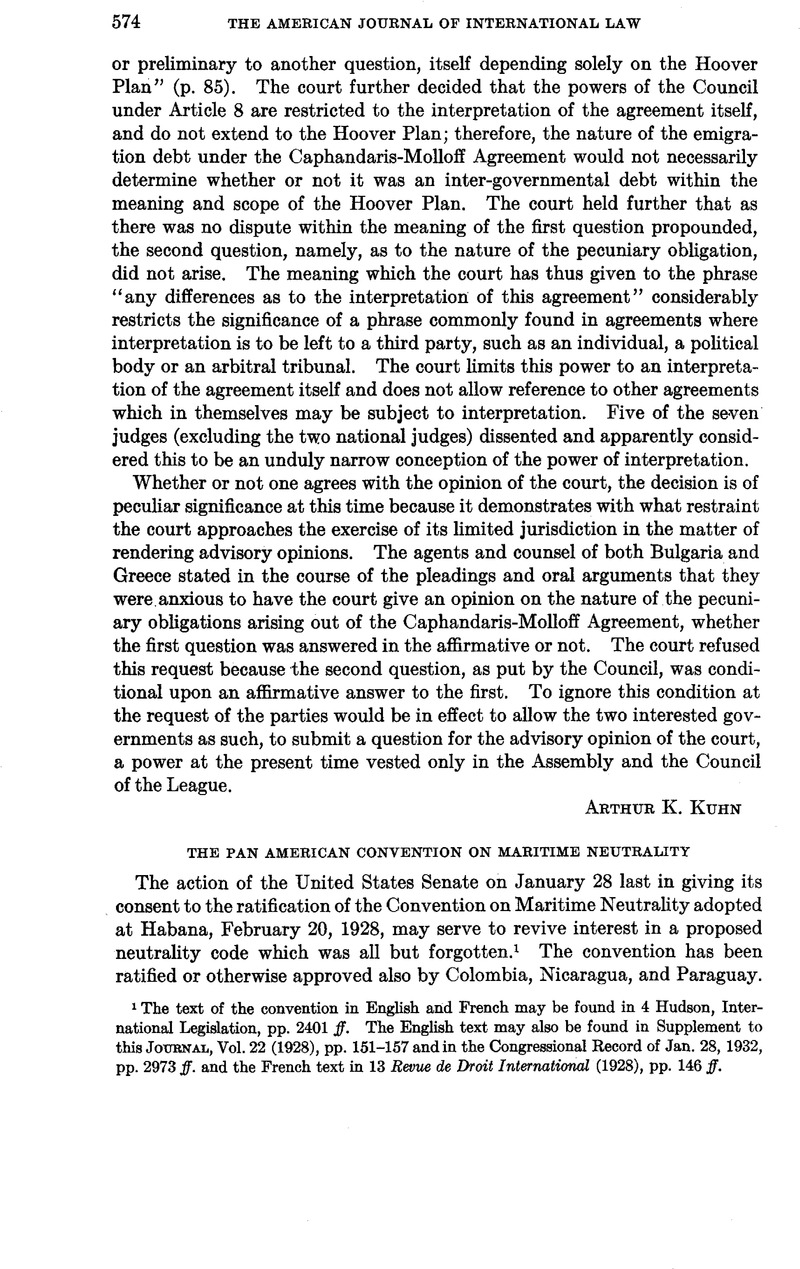No CrossRef data available.
Article contents
The Pan American Convention on Maritime Neutrality
Published online by Cambridge University Press: 12 April 2017
Abstract

- Type
- Editorial Comment
- Information
- Copyright
- Copyright © by the American Society of International Law 1932
References
1 The text of the convention in English and French may be found in 4 Hudson, International Legislation, pp. 2401 ff. The English text may also be found in Supplement to this Journal, Vol. 22 (1928), pp. 151–157 and in the Congressional Record of Jan. 28, 1932, pp. 2973 ff. and the French text in 13 Revue de Droit International (1928), pp. 146 ff.
2 Acte Final de la Session de la Havane (Oxford University Press, 1917), pp. 79 ff.
3 International Law and the World War, Vol. II, p. 294; Prize Law During the World War, p. 605.
4 It may be remarked also that the Institute projet (Art. 7) abolishes equally the right of commercial blockade.
5 Alvarez, La Grande Guerre Européenne et la Neutralité du Chili, pp. 254–256.
6 Compare, in this connection, the observations of Hyde, International Law, Vol. II, pp. 724–25, and of Reeves, this Journal, Vol. XI (1917), pp. 153.
7 As to the facts, see Vandenbosch, The Neutrality of the Netherlands during the World War, pp. 87–103, and Garner, op. cit., pp. 433 ff.
8 Compare, in this sense, Hyde (op. cit., p. 731), who remarks that “the question presents itself, therefore, whether in any reconsideration of existing regulations and of the practice growing out of them, maritime states should endeavor to cut down the privileges of repair, and proportionally lessen the opportunity for neutral territory so to augment the fighting power of the belligerent ships.” Logically there is no reason why, if the privilege of repair should be cut down, the privilege of revictualling and refuelling for the purpose of enabling the warship to conduct operations against an enemy, should not for the same reason be equally reduced. Professor Hyde (op. cit., p. 728) indeed suggests the desirability of such a change.
9 The American Institute draft contained provisions for the meeting at The Hague of an assembly to guarantee the rights of neutrals and to authorize the use of coercion against the belligerent or neutral who failed to respect the rights and duties of neutrality (Arts. 3–6). But these provisions did not find their way into the Habana Convention.


